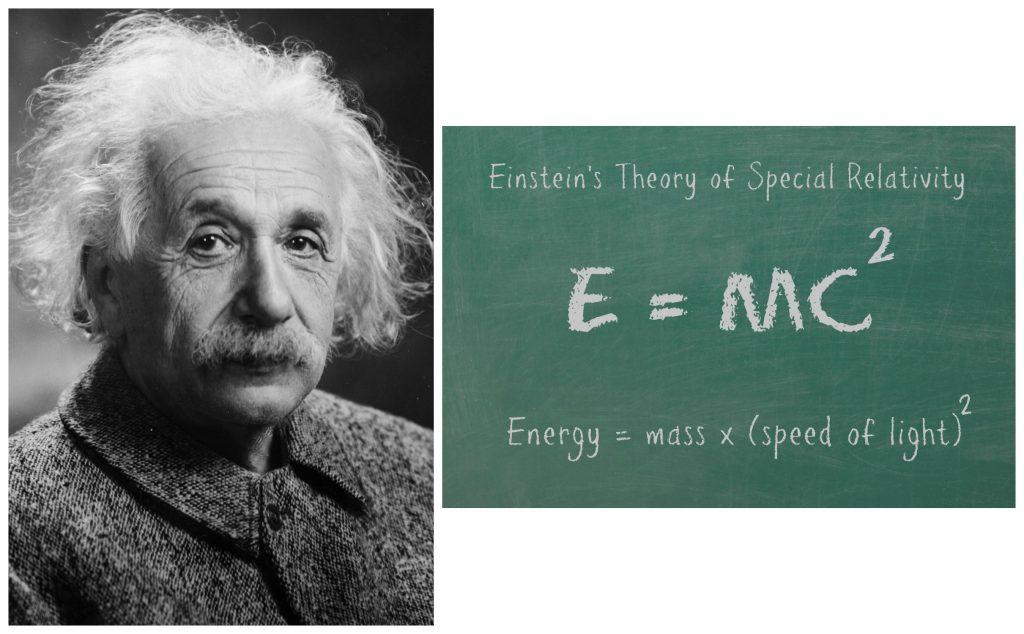What’s the first thing that comes to mind when you think of Albert Einstein? The theory of relativity? The atomic bomb? An image of a wild-haired genius?
How about fairy tales? Seriously. He was a huge fan.
Here’s what he said . . .
************************** “If you want your children to be intelligent, read them fairy tales. If you want them to be more intelligent, read them more fairy tales. When I examine myself and my methods of thought, I come to the conclusion that the gift of fantasy has meant more to me than any talent for abstract, positive thinking.” —Albert Einstein, Scientist (1879-1955) **************************

Yes, Einstein was a scientist, as everybody knows. But he also called himself artist . . .
******************* “I am enough of an artist to draw freely upon my imagination. Imagination is more important than knowledge. Knowledge is limited. Imagination encircles the world.” -Albert Einstein ********************
That quote I hung on the bulletin board when I taught art.
Einstein had more to say about imagination . . .
********************* “Imagination is everything. It is the preview of life’s coming attractions.”
“Logic will get you from A to Z; imagination will get you everywhere.”
-Albert Einstein **********************
So where did he get his brilliance? Was his genius nourished in school? Did he “wow” his teachers in grade school? Was he valedictorian of his class? Listen . . .
*************** “The only thing that interferes with my learning is my education.”
“Education is what remains after one has forgotten what one has learned in school.”
-Albert Einstein ****************
I wonder if he had the same kindergarten teacher I had. Those types keep reincarnating.
I’m definitely an advocate of education, but I believe it should be inclusive and address the whole person, go well beyond the three Rs. A sad day is when schools cut their fine arts programs, relegating them to the frivolous, as an unnecessary luxury.

Educators need to look at Einstein. And L. Frank Baum, who had similar negative experiences with school. Thank goodness Baum never swayed from writing books that young readers could live and thrive on. Well, he almost did, but the children begged him for more!

Incidentally, Einstein was considered a loser early on. His speech was delayed. When he did start talking, it was with great difficulty. He had a quirky habit of repeating himself as he practiced each sentence. One teacher said he would never amount to anything.
Einstein later shared that his slow language development is what gave him time to observe and wonder, starting him on his lifelong course.
Though very motivated to learn on his own timetable, with his own books, Einstein managed to keep up with the dismal formal education. But he disliked school to the point that he persuaded a physician to give an official diagnosis of “neurasthenic exhaustion” as an excuse for leaving his boarding school in Germany to return to his family.
At age 16, even after studying physics all summer, he failed an admissions exam to Zurich Polytechnic, and spent a year preparing to retake it.
Thomas Edison wasn’t fond of school, either. He preferred being self-taught. Besides not talking till age four, he lacked concentration and was deemed unintelligent.
So take heart if your child isn’t on everyone else’s timetable. And if he doesn’t like school.
The fact is, Einstein’s mother read him fairy tales! And the rest is history.
Well, it’s not that simple, but you get the point.

Incidentally, Canadian scientists who studied Einstein’s brain in 1999 discovered that the inferior parietal lobe was fifteen percent wider than normal brains. That’s the area that processes mathematical thought, spatial relationship, and 3-D visualization.
Surely that’s the area where we imagine. Where we visualize a story we’re reading. A fairy tale.
Imagination starts with being able to visualize something in our heads. Something that only exists in our mind’s eye.
So if you’re not feeling creative, or it you’re worried about your kids or grandkids not being creative, go to your nearest fairy tale bookshelf.

What fairy tales have you been drawn to over the years, or was a favorite in your childhood?
Please add your comments below. I’d love to hear from you!
Ever musing,
Laura
SaveSave
